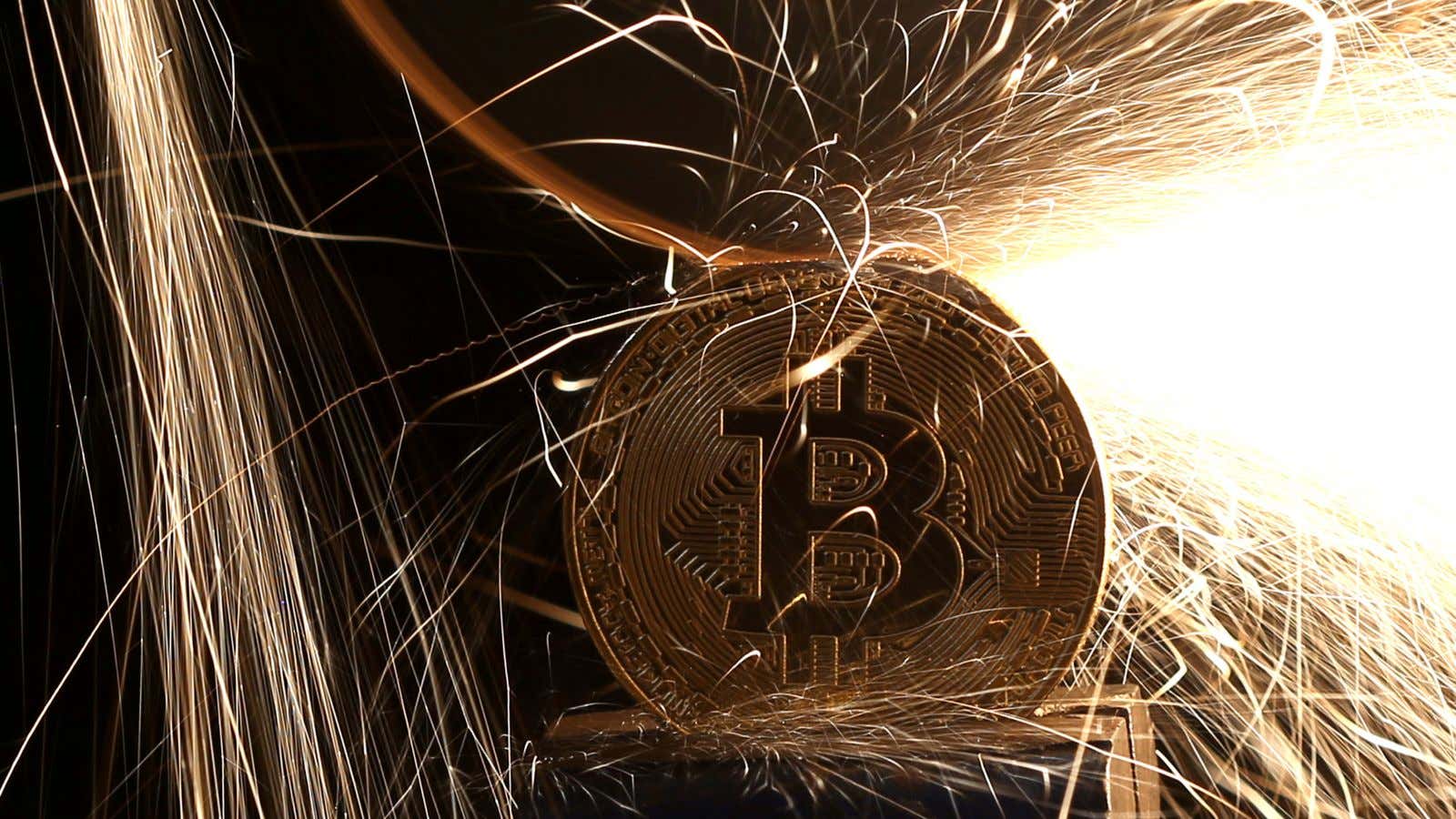India’s cryptocurrency ecosystem has long been on tenterhooks.
The country’s central bank, in April, had asked lenders to discontinue all their banking relationships with virtual currency exchanges by June this year. The ensuing legal battle between the Reserve Bank of India (RBI) and the cryptocurrency bourses is approaching its logical conclusion.
Today (Sept. 12), the supreme court is set to begin its final hearing in the case filed by the exchanges against the RBI’s decision, after it was postponed by a day.
However, a verdict is unlikely today, believe lawyers.
The Narendra Modi government, market regulator Securities and Exchange Board of India (SEBI), the enforcement directorate, and the income tax department, too, are parties to the case.
And since none except the central bank has responded to the exchanges’ plea, that may lead to further delay.
Earlier, the matter was being heard by a three-judge bench of chief justice Dipak Misra and justices AM Khanwilkar and DY Chandrachud.
“The case has been transferred to justice Rohintan Fali Nariman and no one (except the RBI) has filed a reply. Because of this, the court may have to adjourn the hearing to a later date and a final verdict is unlikely today,” said Mohammed Danish, a Delhi high court advocate and regulatory expert at Crypto Kanoon, a platform engaged in regulatory analysis and raising legal awareness about digital currencies in India.
What this means
Typically, the parties named by the petitioner are expected to respond to the charges in court. A copy of the reply is also served to the petitioner who can then file a counter-argument.
“If this was a civil suit, the bench could have even decided to give an ex parte judgment (a verdict delivered even when all parties in the case are not present). However, this is a constitutional case and an ex parte judgment is unlikely, and it may end up slowing down the entire hearing process,” said a lawyer representing the exchanges, requesting anonymity.
Government agencies are usually under no compulsion to file such a reply. So it is likely to become a long-drawn argument, since so far nothing has been put on record by SEBI, the government, and other parties, said Rashmi Deshpande, an associate partner with Khaitan & Co, a law firm representing virtual currency exchange Kali Digital Eco-Systems. “Also, tomorrow if any of these parties ask for more time, we have a strong case to counter that argument as they didn’t file the reply in the stipulated time.”
The RBI’s reply was submitted on Sept. 08, wherein it explained why it is uncomfortable with cryptocurrencies and also argued that it is well within its power to regulate the ecosystem. However, the exchanges’ lawyers have argued that the RBI has touched upon only selective topics in the debate.
So all eyes are now on the impending court drama.
Update: The final Supreme Court hearing has been postponed to Sept. 13.
